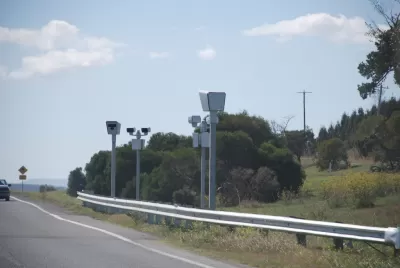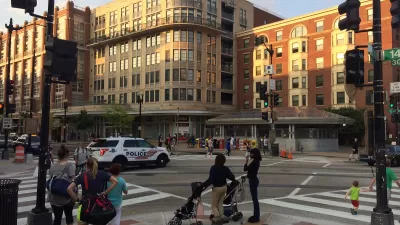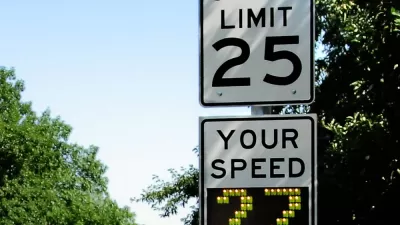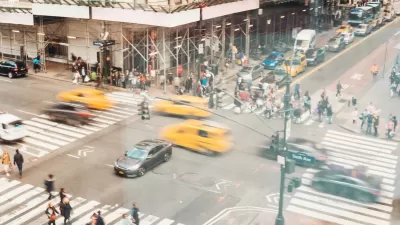Data from Chicago reaffirms the efficacy of speed cameras at reducing traffic fatalities and serious injuries.

A recent analysis of Chicago's speed camera program shows that, while the number of crashes increased between the study periods of 2012-2013 and 2018-2019, "the increases at cam locations were significantly lower than those experienced throughout the city as a whole." According to John Greenfield, this points to the effectiveness of speed cameras in changing driver behavior and reducing fatal crashes and injuries.
The study showed that "Fatal or serious injury crashes increased only 2 percent near speed cameras between 2012-13 and 2018-19, as compared to a 21 percent increase citywide," while overall crash totals increased by just one percent compared to 25 percent citywide. Greenfield concludes that, based on the data, "The cameras are doing their job by keeping serious and fatal crash numbers in the safety zones relatively low compared to those in other parts of the city, preventing life-changing injuries and deaths."
Despite this study and similar evidence from other places, speed cameras, also known as automated traffic enforcement, have encountered opposition from lawmakers who cite concerns about corruption, unequal enforcement, and civil rights violations. Between 2012 and 2016, the number of red-light cameras fell by a fifth, even as red light runners killed more people than in previous years.
FULL STORY: Bakery-fresh CDOT study reaffirms speed cameras are saving lives

Planetizen Federal Action Tracker
A weekly monitor of how Trump’s orders and actions are impacting planners and planning in America.

Maui's Vacation Rental Debate Turns Ugly
Verbal attacks, misinformation campaigns and fistfights plague a high-stakes debate to convert thousands of vacation rentals into long-term housing.

Restaurant Patios Were a Pandemic Win — Why Were They so Hard to Keep?
Social distancing requirements and changes in travel patterns prompted cities to pilot new uses for street and sidewalk space. Then it got complicated.

In California Battle of Housing vs. Environment, Housing Just Won
A new state law significantly limits the power of CEQA, an environmental review law that served as a powerful tool for blocking new development.

Boulder Eliminates Parking Minimums Citywide
Officials estimate the cost of building a single underground parking space at up to $100,000.

Orange County, Florida Adopts Largest US “Sprawl Repair” Code
The ‘Orange Code’ seeks to rectify decades of sprawl-inducing, car-oriented development.
Urban Design for Planners 1: Software Tools
This six-course series explores essential urban design concepts using open source software and equips planners with the tools they need to participate fully in the urban design process.
Planning for Universal Design
Learn the tools for implementing Universal Design in planning regulations.
Heyer Gruel & Associates PA
JM Goldson LLC
Custer County Colorado
City of Camden Redevelopment Agency
City of Astoria
Transportation Research & Education Center (TREC) at Portland State University
Jefferson Parish Government
Camden Redevelopment Agency
City of Claremont





























